The Man Who Wouldn't Talk
Brief Synopsis
Cast & Crew
David Burton
Lloyd Nolan
Jean Rogers
Richard Clarke
Onslow Stevens
Eric Blore
Film Details
Technical Specs

Synopsis
When prominent New York businessman Frederick Keller is murdered, police arrest his former accountant, John Finney. Before Finney is sentenced, however, a mysterious man enters the courtroom and proclaims himself the murderer. District Attorney Cluett interviews the man, who gives his name as Joe Monday, which is an obvious alias. Joe refuses to divulge any personal information yet readily signs a confession. The press builds up the story of the anonymous murderer, and people begin writing to Joe in hopes that he is their long-lost brother, son or father. Joe's defense attorney, Steve Phillips, asks Joe to reveal his identity for the sake of those whose false hopes he is raising, but Joe maintains his silence, even when he is visited by Alice Stetson, who is searching for her brother Frank. Alice has not seen Frank since he left to fight in World War I, during which he was declared missing in France. At first she thinks that Joe is Frank and tests him by reciting poems they loved as children, but when he says that he served with Frank in the Army and saw him die, she becomes discouraged. Steve believes that this may be a clue to Joe's identity, however, and he and Alice travel to Washington, D.C. to look at the records of Frank's company. There is no "Joe Monday" listed, so they decide to question the company's two surviving members. The first, James Sawyer, is blind and cannot identify Joe, and when they try to question Paul Gilli, they discover that he has gone to New York to testify in the trial. When the trial begins, Gilli testifies that Joe is Frank Stetson and that he spied for Germany during the war. Frank was court-martialled on the basis of evidence provided by Keller and sentenced to death. Joe still refuses to testify in his defense, and the jury tries to reach a verdict. As they are deliberating, the judge calls them into the courtroom and introduces a new witness, Otto Bruckner. Bruckner takes the stand and testifies that, during the war, he was a German spy posing as a French cafe owner named Henri Picot. Keller was also a spy, and when Frank found evidence of Keller's treachery, Keller framed him. Joe finally breaks down, embraces his beloved sister and agrees to testify. He describes how Keller betrayed him and how he escaped from the firing squad but could not return to his family because he had been branded a spy. After twenty years, he found Keller and tried to force him to tell the truth. Keller pulled a gun on him, and Joe was forced to shoot him in self-defense. Believing that all evidence confirming his story had been destroyed, Joe refused to say anything about himself in order not to hurt Alice and their aged mother. Joe is acquitted after his stirring testimony, and later, a crowd cheers as he is reunited with his mother.

Director
David Burton
Cast
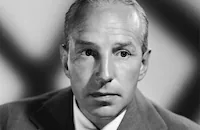
Lloyd Nolan

Jean Rogers
Richard Clarke

Onslow Stevens

Eric Blore
Joan Valerie

Mae Marsh
Paul Stanton
Douglas Wood

Irving Bacon
Lester Scharff
Harlan Briggs

Elizabeth Risdon
Renie Riano
John H. Elliot
Gus Glassmire
George Melford
Charles Trowbridge
Sherry Hall

Manton Moreland
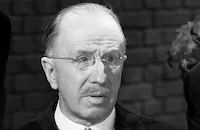
Arthur Hoyt
Robert Emmett Keane
Ed Mortimer
Chester Clute
Harry Denny
Arthur Rankin
Joe Merlo
Cliff Clark
Eddie Dunn
Edith Evanson
Cy Ring
Franklin Parker
Imboden Parrish
Charles Tannen
A. S. Byron
George Magrill
Harry Hayden
Pat O'malley
Fred Kelsey
Frank Dae
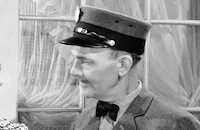
John Butler
Hooper Atchley
Bruce Warren

Emmett Vogan
George Douglas
Ernie Alexander
Abe Dinovitch
Paddy O'flynn
Edward Earle
Bert Moorhouse
Ed Stanley
Stanley Andrews
George Chandler
George Walcott
John Eberts
Harry Burns
William Haade
Paul Sutton
Charles Stevens
Jean Del Val
Hector Sarno
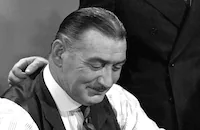
Edward Keane
Peter Lynn
Freddie Walburn
Charles Peck
James Dundee
Herbert Ashley
Gary Breckner
Max Wagner
Jean Houghton
Selmer Jackson

Fern Emmett
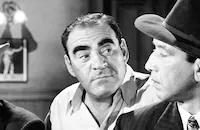
Ralph Dunn
Tom Hanlon
Stanley Blystone
Walter Soderling
Leona Roberts
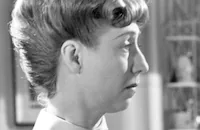
Marie Blake
Don Forbes
John Hiestand
Crew
Joseph E. Aiken
William H. Anderson
Clark Andrews
Lou Breslow
David Burton
Robert Campbell
Richard Day
Nick De Maggio
George Dudley
Robert Ellis
Edward Ettinger
William Eull
Willon Fieldz
Owen Francis
Paul Garnett
Don Greenwood
William Grefrath
Herschel
Frank L. James
Samuel Kaylin
Fred Kelly
William Koenig
Stanley Kufel
Isobel Lennart
Thomas Little
Helen Logan
Joseph Mazzoletti
Jack Mcedwards
Owen Mclean
Virgil Miller
Roger Murphy
William Pillar
Stanley Rabjohn
Viola Richards
Alex Troffey
Henry Weinberger
Ted Weisbarth
Walter Whaley
William Whitley
Sam Wurtzel
Sol M. Wurtzel
Lester Ziffren

Film Details
Technical Specs

Quotes
Trivia
Notes
Robert M. Middlemass and Holworthy Hall's one-act play was published in McClure's (Mar 1921) and was popularized in vaudeville by Bert Lytell in the early 1920s. The Variety review of this film notes that the play "originally had been a Lambs Gambol skit." The Lambs were a New York-based club that put on variety shows every year. The working title of this film was The Valiant. According to Hollywood Reporter news items, Richard Barthelmess and then Humphrey Bogart were considered for the lead role. This was director David Burton's first film since the 1936 RKO picture, Make Way for a Lady. The Man Who Wouldn't Talk is a remake of a 1929 Fox production entitled The Valiant, which was directed by William K. Howard and starred Paul Muni in his screen debut. Fox also made a Spanish-language version titled El valiante in 1930. Two television versions of Middlemass and Hall's play have been produced, both of which were entitled The Valiant. The first was broadcast on June 7, 1939 and starred Bert Lytell. The second, broadcast on November 29, 1948, starred Paul Muni. The Man Who Wouldn't Talk was the first version of the play to have a happy ending in which the lead character is not executed for the murder.












